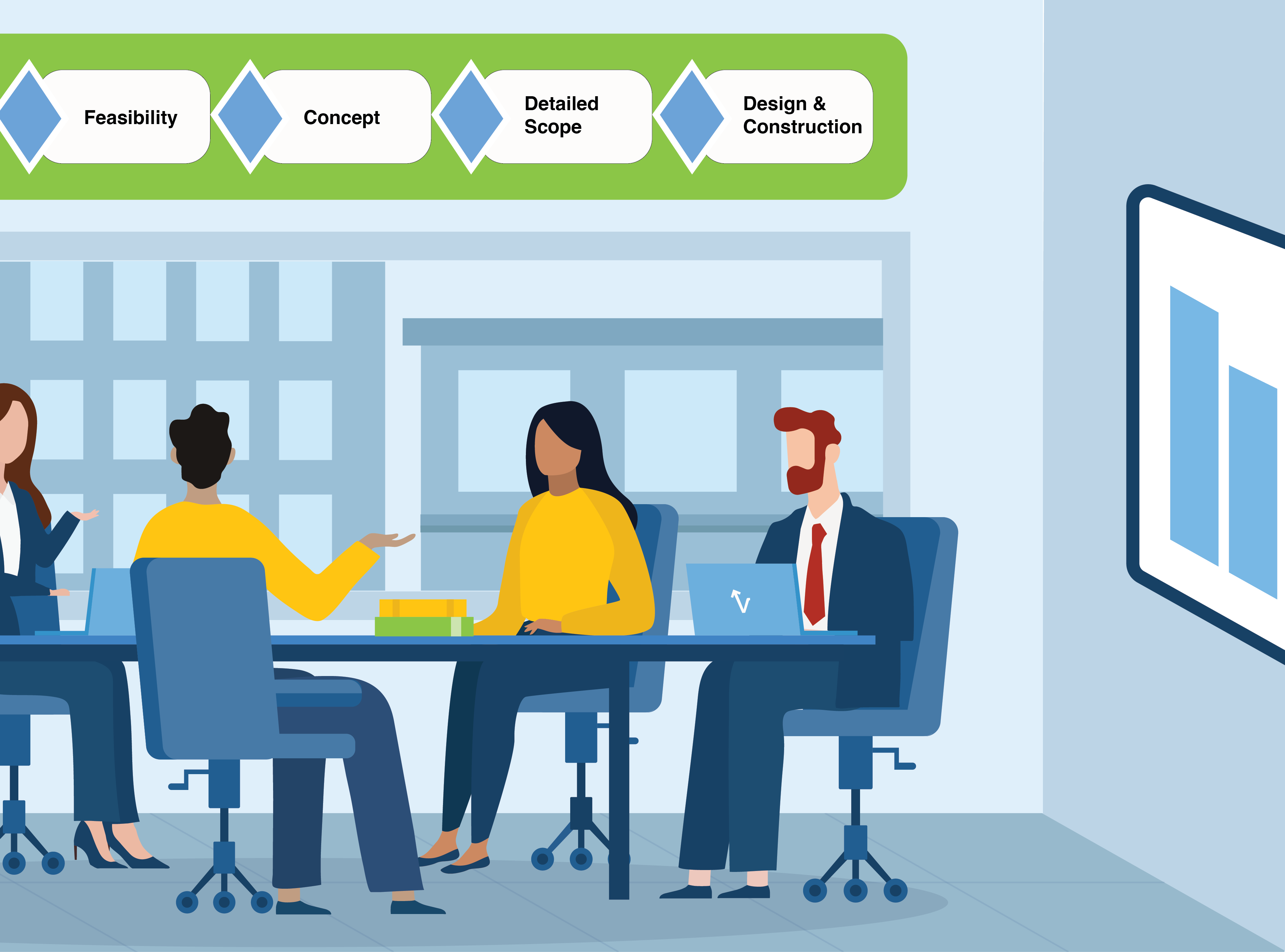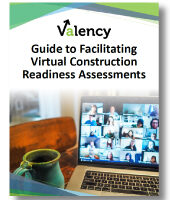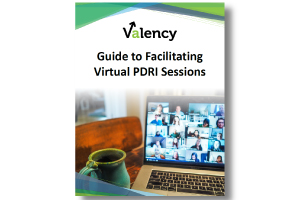Resource
Role of the Facilitator
Master the art of facilitation for stronger team alignment and decision-making.
A skilled facilitator ensures project workshops are productive, engaging, and support effective decision-making. Facilitators should be neutral to the workshop content and in most cases, should not be a direct team member of the project being discussed. Facilitation is also a critical skill for project leaders who must be decisive while using a collaborative process to achieve strong team alignment.
The mission of a facilitator is to enable a group to reach a conclusion they would struggle to achieve independently. Effective facilitators are essential throughout the capital project lifecycle, yet this skill is often overlooked. Studies by the Construction Industry Institute (CII) show that strong project team alignment drives predictable project outcomes. Establishing and maintaining this alignment requires a project culture committed to effective leadership, communication, and trust, with facilitation as a foundational skillset.
METHODOLOGY
What
is facilitation?
METHODOLOGY
What
is
facilitation?
A skilled facilitator ensures project workshops are productive, engaging, and support effective decision-making. Facilitators should be neutral to the workshop content and in most cases, should not be a direct team member of the project being discussed. Facilitation is also a critical skill for project leaders who must be decisive while using a collaborative process to achieve strong team alignment.
The mission of a facilitator is to enable a group to reach a conclusion they would struggle to achieve independently. Effective facilitators are essential throughout the capital project lifecycle, yet this skill is often overlooked. Studies by the Construction Industry Institute (CII) show that strong project team alignment drives predictable project outcomes. Establishing and maintaining this alignment requires a project culture committed to effective leadership, communication, and trust, with facilitation as a foundational skillset.
Facilitation Tips
Facilitation Tips
Begin with an understanding of group decision making and group dynamics.
Develop and share an agenda with all relevant stakeholders prior to the start of the meeting.
Create a facilitation strategy to define the meeting’s purpose, information flow, and expected outcome.
Use specific facilitation techniques, principles, and tools to achieve your meeting goal.
Take advantage of available technology to engage participants and capture and visualize information.
Additional
Resources
Resources
Related
Courses & Webinars
Courses & Webinars

Facilitation Skills & Techniques for Capital Project Workshops
Course

Front End Planning Principles & Practices
Course
Project Assurance Facilitation
Service
Additional information
Frequently Asked Questions
Frequently Asked Questions
What capital project workshops require a facilitator?
Larger and more complex workshops that require strong participant engagement and collaboration benefit the most from a strong facilitator.
Some examples of workshops and meetings that would benefit from a skilled facilitator include:
- Advanced Work Packaging (AWP) Workshops

- Brainstorming Sessions
- Construction Readiness Assessments
- Lessons Learned
- Options Analysis
- Partnering Sessions
- Project Definition Rating Index (PDRI) Assessments
- Risk Assessments
- Strategic Planning
- Value Engineering
- Commissioning & Operational Readiness Assessments
Who would benefit from facilitation training?
Many individuals within the organization would benefit from developing their facilitation skills. Facilitators should be neutral on the content of the workshop or meeting but have a general understanding of the types of projects and processes involved. Facilitators could be project leaders outside of the project in question, members of the Project Management Office (PMO) or Center of Excellence (COE) or even from within the administrative organization.
Typical project workshop leaders also include: Program Managers, Project Managers, Design Managers, Designers, Project Engineers, Construction Managers, Technical Managers, Business Unit leaders, Site Supervisors, Operations leaders, Contract Administrators, Maintenance Managers, Risk specialists, Procurement professionals, Quality specialists and others.
What are common facilitation challenges?
There are many challenges to achieving the meeting objectives:
- There is the potential for pre-existing conflicts between stakeholders to emerge during discussions.
- Group decision making by nature means that people will come to the table with different and often competing priorities.
- Complicated group dynamics will emerge, especially as you work through understanding a wider range of new and sometimes opposing ideas.
- It takes time to give everyone space to explain and understand all perspectives.
- And of course, we have different personalities to consider.
How can facilitation skills be developed?
Our private, instructor-led course “Facilitation Skills and Techniques for Capital Project Workshops” is an interactive facilitator training course developed specifically for project leaders in the construction industry.
In addition, Valency’s experienced facilitators can provide mentorship through facilitating project assurance assessments for your team.
The team at Valency has supported many organizations in developing a roster of skilled facilitators. Let’s discuss how we can best support you.



